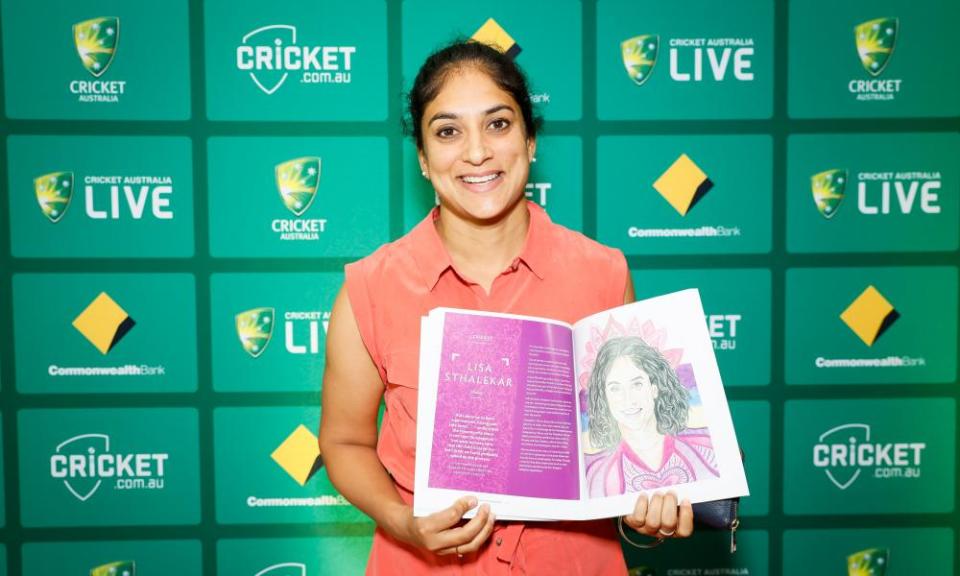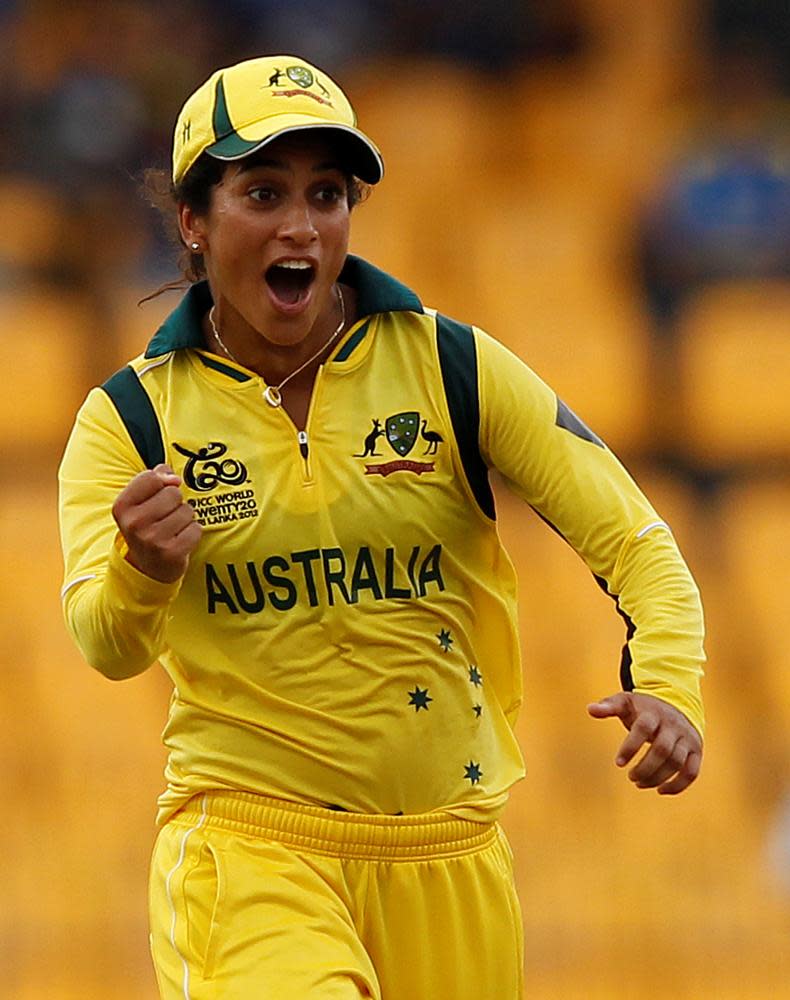Lisa Sthalekar: cricket hall of famer who has consistently broken down barriers

From an orphanage in India to the International Cricket Council hall of fame, via four World Cup titles and a distinguished international and domestic career, Lisa Sthalaker’s journey has been truly extraordinary.
Sthalaker was just three weeks old when her parents adopted her from an orphanage in Pune and, after four years living in America and Kenya, the family settled in Australia, where Sthalaker set out on the path to becoming one of the world’s most formidable female cricketers.
Her induction into the Hall of Fame, the 27th Australian and fifth Australian woman to receive the honour, could easily be based purely on a career that included World Cups, eight Tests, 125 one-day internationals and 54 T20 internationals. But her contribution to the game as a coach, mentor, administrator and commentator has made her one of the most visible and influential women in cricket both in Australia and internationally. Still, this week’s announcement came as a surprise.
Related: The Spin | Women's cricket well placed to avoid another male-led stunting of progress
“One of the panellists sent me a message saying, ‘You’ve been nominated and it’s unanimous and you’ll be inducted into the Hall of Fame’ and I thought yeah, good one,” Sthalekar told Guardian Australia. “I think I’m a little too young for that and my stats aren’t good enough and then I got the official letter from the ICC.”
Fellow Hall of Famer Belinda Clark remembers the teenage Sthalekar as “confident but not cocky” when she emerged as a talented allrounder in the New South Wales squad.
“Two things that stood out were the spin bowling and the fielding,” said Clark. “Plus she timed the ball so beautifully when she batted, usually down the order in what was a very strong team, and she fitted in so well. She wanted to do really well and take on challenges and she’d never give up in any situation.”
It was those skills and her competitive nature that established Sthalekar as an integral part of an Australian side that continued to dominate international cricket after Clark’s era and her longevity in the sport was such that the 41-year-old became a significant mentor for the current generation. Alyssa Healy was one of a crop of today’s Australian players who sought out Sthalekar as a mentor.
“She was a really great example of balance and how to play cricket with a smile on your face,” said Healy. “Obviously her skills on the field were remarkable however the way she was able to enjoy the cricket, touring life and everyone’s success along the way was great for the younger players to see.”

Sthalekar’s playing career coincided with the dramatic shift from the sport’s fledgling professionalism to its current state, something she fought for as a player and then as the first woman elected to the Australian Cricketers’ Association board and the Federation of International Cricketers’ Associations. Her arrival at the ACA during fractious pay negotiations with Cricket Australia was a fiery baptism in the sport’s politics but, at their conclusion, female players emerged as big winners, with landmark contracts and vastly improved employment conditions.
“With the integration of women into the ACA it was imperative to have a female voice,” said Sthalekar. “I came onto the board and it was MOU [memorandum of understanding] time and I thought I was way out of my league. One thing I learned was that everything that was in place for male players – and I’m not just talking about the dollar figures – but the support staff, the environment, the welfare, everything around the male players was something the women players were aspiring to.”
Sthalekar’s voice now reaches far wider than administrative circles or playing groups. Along with Mel Jones, Isa Guha and Alison Mitchell, she has been at the forefront of a small, trailblazing group of female television commentators in Australia. She has also become a regular commentator at the Indian Premier League and other international tournaments.
“I’ve realised you’re not going to be everyone’s cup of tea and that’s OK,” said Sthalekar. “But hopefully I’m slowly educating people and I’m getting better at that industry.”
The women’s game has taken giant strides in the past decade, but Sthalekar is adamant it has further to go. Her work with Fica has illuminated the need for greater international growth and development of domestic cricketers in other countries to improve the overall level of international standards. She is also a passionate advocate of women’s Test cricket.
“You can’t deprive half of your population the chance to play what we all know is the pinnacle of cricket. That’s discrimination. Administrators, commentators, players understand it costs money but we’re getting to the stage where women’s cricket is something to be seen as a commercial commodity and I’d love to see that money go back into domestic cricket and potentially women’s Test cricket.”
But Sthalekar’s influence on the game can perhaps best be seen by the way her achievements have affected those who have followed.
“She contributed plenty on the field, which we can see via her stats,” said Healy. “But the way she’s contributed to cricket off the field both during and post her career is incredibly impressive and inspiring. She’s consistently breaking down barriers wherever she goes in her many roles and ultimately creating opportunities for other women and those that will come after her. Inspiring is a word I’ve said a lot, but Lisa is. I constantly look to her for advice and inspiration on not only my cricket life but also professional life after cricket.”
Related: Ellyse Perry returns to Australia squad for limited-overs series against New Zealand
In 2012, Sthalekar visited the orphanage in Pune where her life began and realised how dramatically her adoptive parents’ choice had changed the course of her life. Entering the exclusive and rarefied surrounds of the Hall of Fame has provided another opportunity to reflect on how that life has, until now, unfolded.
“Obviously World Cups are really special, each one has its own unique journey and story and it’s something only that small group of players and support staff have experienced and shared and no one else really knows that feeling,” said Sthalekar. “So it’s probably those little things that are really special and are probably the highlight of my career.
“People ask how many wickets did you take or how many runs did you make or centuries and I’ve got no idea. I don’t even know how many games I’ve played for Australia. I’ve never been stats driven. I’ve always been a person who just wants to win.”

 Yahoo Sport
Yahoo Sport 





































